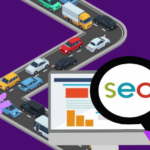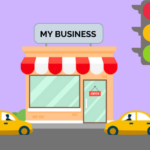Can you remember the last time you went shopping and purchased something that you didn’t need but at the time felt like buying? Probably more recently than you think.
We’d like to believe that every purchase decision is based on logic and clear thinking, but this isn’t always the case. Many of our shopping decisions are influenced by our current moods and emotions.
Emotional purchasing decisions might be impulsive. They can also revolve around a strong desire for a specific product or a strong sentiment for the brand or people selling the specific goods.
Emotional advertising is the process through which a brand attempts to elicit emotions in its advertising, and it may be used to help brands increase sales.
What is emotional advertising?
Emotional advertising is the deliberate use of persuasive messages that appeal to human emotions in order to establish a strong connection with the audience and achieve the intended result. It frequently appeals to a single emotion. Fear, anger, sadness, joy, or any other human emotion strong enough to affect decision-making or compel action can be considered.
We need to understand emotions before we can comprehend why emotional marketing is effective and how you can include it into your marketing efforts.
Emotions aren’t always in sync with how your body is feeling. They are more reflective of your mental state.
Every feeling is unique, just like every colour. There are certain fixed concepts, but emotions are mostly on a spectrum. As with different colour tones, a slight alteration on the spectrum can result in a different kind of happiness, sadness, or rage.
Depending on your goods and sector, you can elicit a variety of feelings. It will influence your marketing strategies (copywriting, media, visuals, etc.) and make them as effective as feasible.
Why Emotional Marketing Works?
People have feelings. We experience certain feelings when we watch a movie. It’s just human nature.
That is why emotional marketing is effective. Let us proceed to learn more about it.
- a) Emotional marketing leads to great first impressions
Imagine there are two types of products on the market, and both advertise to attract more buyers. Which would “overwhelm” you if one advertisement only talked about things while the other made you laugh or cry? Isn’t it the second one?
It only takes a few seconds to make a good first impression. The same logic applies to a product’s or brand’s initial impression, and channelling emotion can help you shape that impression and make the brand or product stand out in your clients’ minds.
- b) Emotional marketing inspires people to act
While advertising is an effective technique for eliciting a purchase or two, it also encourages other behaviours that help your business and brand development.
Here’s a categorization of that activity per emotion:
Happiness | Happiness motivates us to share and sharing increases brand recognition. If terrible news sells, then good news spreads quickly. According to studies, good news and happy content circulate faster on social media than any other sort of content. When we see someone smiling, we like to mirror that sensation, which motivates us to share whatever content made us joyful in the first place.
Sadness | Sadness causes us to sympathise and connect, and empathy motivates us to give more generously. According to a 2007 study, feelings of empathy inspire compassion and the urge to act on behalf of others. It’s no surprise that groups like the ASPCA use sad photographs and heart-warming songs to solicit donations. Sadness motivates us to act and aid others, which usually takes the form of financial contributions.
Surprise and fear | Surprise and fear cause us to cling to what is familiar and encompassing what is familiar lead to increased brand loyalty. Marketers are usually cautious to employ fear in their commercials because customers would link unpleasant emotions with their brand. But that is not the case. According to studies, generating dread helps your business to be viewed as the one bright spot in a dark environment, implying that your customers will rely on you more when things go wrong.
Anger and passion | Anger and passion make us obstinate, and obstinacy fuels viral content and dedicated followers. Consider any Facebook video with thousands of likes and comments about a local tragedy or political topic. Strong emotions such as anger and passion, like happiness, inspire people to share content. According to research, creating content that purposefully causes wrath and anxiety increases virality and views.
Emotional marketing encourages consumers to make decisions based on their emotions. According to studies, people make decisions based mostly on emotions rather than facts. More than the content of an advertisement or marketing material influences a person’s intention and desire to purchase.
It also demonstrates that, out of 1,400 successful advertising campaigns, those with simply emotional content outperformed those with only intellectual content (31 percent vs. 16 percent).
5 Effective Emotional Hooks for Marketers
As previously said, emotional marketing frequently employs a single emotion to develop a relationship. Most of the time, the most powerful human emotions have the best chances of success. Let’s look at which of these emotional marketing methods has resulted in the success of various marketing initiatives for global brands.
#1 Fear
Fear is one of the most haunting of all human emotions. Evoking fear in your marketing message is effective when it aligns with your target audience’s pre-existing fears.
You don’t always have to utilise danger or threats to elicit fear, especially if it doesn’t fit with the personality of your business. Fear can be used in a variety of ways. For example, employing countdown timers to emphasise that your offer is time-limited might create a sense of urgency. You are exploiting people’s Fear of Missing Out in this manner (FOMO).
#2 Anger
Anger makes people understand that something needs to be done or altered in order to accomplish justice or solve a pressing situation.
#3 Happiness
Everyone seeks happiness, and because happiness is a positive emotion, employing the ‘joy marketing’ method helps you identify your business with positivity.
#4 Belonging
Nobody wants to be alone. It’s human nature to crave intimacy, deep bonds, and the security of belonging to a community. According to Maslow, one of our most basic wants that motivates our conduct is a sense of belonging.
This is why many brands are building communities—online or offline—where their committed customers can share mutual interests.
Why are these marketing strategies effective? Because they let customers feel like they’re part of something bigger—a community.
#5 Greed
One of the primary goals of marketers is to delight the customer, and this usually happens when we make them feel like they’re getting more than what they’re paying for. It’s quite natural, and it all comes back to greed.
We can all agree that in today’s consumerist culture, people are greedy, and marketers like you may take advantage of that. This is where the “Buy One, Get One (BOGO)” technique excels.
Here is some sample ad copy you can use:
- Limited Time Offer
- Limited Stock
- Only 6 Days Left. Hurry!
- Don’t Miss Out
Emotional Marketing Tips You Need to Master
There is a perfect method to perform emotional marketing, just like there is a perfect way to do every other marketing tactic. Check out the following emotional marketing best practices to avoid upsetting your audience’s emotions in the wrong way.
Understand your audience on a deeper level
We’re talking about the emotional connection here, and the only way to reach your audience’s hearts is to understand them on a more intimate level. What are their deepest fears, most powerful desires, challenges, and motivations?
You’ve probably finished generating realistic buyer profiles for your marketing initiatives by now. Allow it to lead you. If not, it’s time to think about developing some.
Tell a story
Once you’ve gotten to know your target audience on a personal and emotional level, use that knowledge to craft a tale to which they can relate.
People enjoy hearing stories in which they can relate, learn, or be motivated. Offer something that will entice readers to share it with their peers. Follow the five basic aspects to bring your tale to life: character, setting, storyline, conflict, and theme.
Pay attention to creative design
Colour is recognised to have an emotional impact on humans. Blue, for example, has a relaxing effect, whilst red might cause an increase in heart rate. As a marketer, you can use colour to increase the emotional appeal of your marketing content.
However, design involves more than just colours. It may also have something to do with music. According to an Australian consumer study, music can elicit strong emotional responses that can alter one’s view of a business. Strings playing short and sharp notes in a major key, for example, might elicit happiness and enthusiasm, whereas switching from major to minor keys can elicit sadness or melancholy.
So, if your marketing channel supports audio, make sure to build the scene with the appropriate music and sounds to complement your ad.
Be authentic
Emotional marketing is risky, therefore use caution when employing it as a tactic. You can’t play with emotions or pretend to be them and expect to get away with it. You must grasp your brand’s basic principles and integrate them with your marketing. Your genuineness and authenticity are crucial since your audience can detect them.
Summing-up
Emotional advertising can boost brand awareness and client loyalty. To accomplish so effectively, though, you must first understand your audience and their fears, desires, requirements, and pain points that motivate them to act. While it can be tricky, it shouldn’t be hard for marketers to take advantage of.
So, the next time you’re writing content, consider how you may use emotion to convey a more compelling message. The goal is to increase involvement, so don’t be afraid to hit some emotional notes. To make the connection authentic, stick to your company promise and make sure your message is heartfelt.
Contact Shergroup’s digital marketing team if you want to develop excellent marketing strategies to attract your customers. We have a team of smart marketing professionals who would help you take your brand to the next level and get the attention of maximum eyeballs on your brand.
If you want to understand how we can help you with our marketing solutions, contact our business solutions advisors.
Contact us via our channels |
Phone | 020 3588 4240
Website | www.shergroup.com and you can chat to us from here
Email | [email protected]
Facebook | Check out Shergroup on this channel and message us | facebook.com/Shergroup
Twitter | Check out ShergroupChat on this channel and message us twitter.com/Shergroupchat
LINKEDIN | Check out Shergroup message us – and please FOLLOW us | linkedin.com/company/35698655/
Instagram | Check out ShergroupChatter and message us | instagram.com/shergroupchatter/








